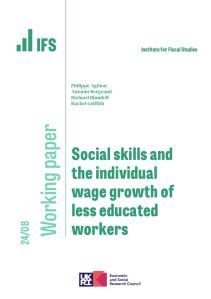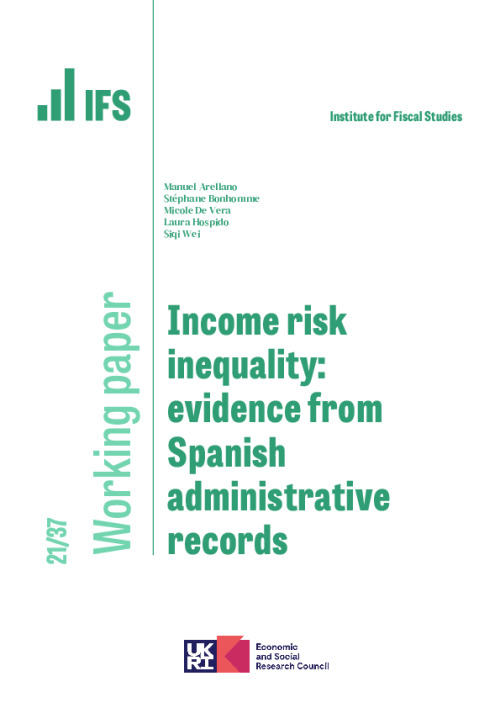Downloads
In this paper we use administrative data from the social security to study income dynamics and income risk inequality in Spain between 2005 and 2018. We construct individual measures of income risk as functions of past employment history, income, and demographics. Focusing on males, we document that income risk is highly unequal in Spain: more than half of the economy has close to perfect predictability of their income, while some face considerable uncertainty. Income risk is inversely related to income and age, and income risk inequality increases markedly in the recession. These findings are robust to a variety of specifications, including using neural networks for prediction and allowing for individual unobserved heterogeneity.
Authors

Research Fellow Centre for Monetary and Financial Studies (CEMFI)
Manuel is a Research Fellow of the IFS and a Professor of Econometrics at CEMFI, Madrid.

Professor of Economics University of Chicago

Micole De Vera

Laura Hospido

Siqi Wei
Working Paper details
- DOI
- 10.1920/wp.ifs.2021.3721
- Publisher
- Institute for Fiscal Studies
Suggested citation
Arellano, M et al. (2021). Income risk inequality: evidence from Spanish administrative records. London: Institute for Fiscal Studies. Available at: https://ifs.org.uk/publications/income-risk-inequality-evidence-spanish-administrative-records (accessed: 23 April 2024).
More from IFS
Understand this issue

Big firm, little firm: are differences between companies driving inequality and holding back growth?
30 August 2023

Still a man’s world? Gender inequalities, parenthood and the workplace
23 August 2023

Sure Start achieved its aims, then we threw it away
15 April 2024
Policy analysis

Living standards since the last election
21 March 2024

Progression of nurses within the NHS
12 April 2024

Major challenges for education in Wales
21 March 2024
Academic research

Labour market inequality and the changing life cycle profile of male and female wages
15 April 2024

There and back again: women’s marginal commuting costs
2 April 2024

Social skills and the individual wage growth of less educated workers
27 March 2024
